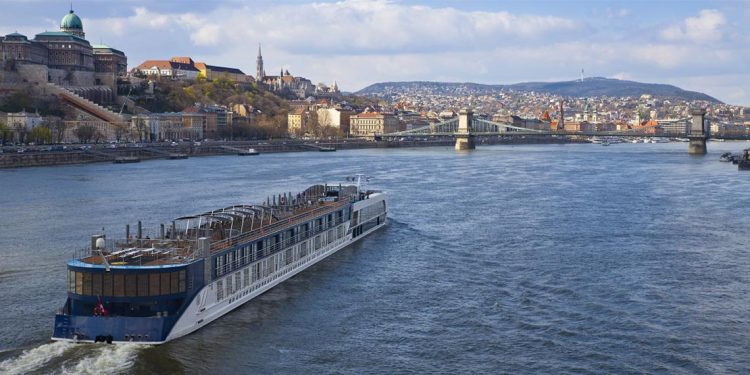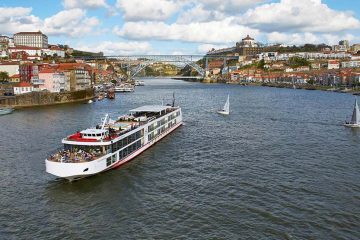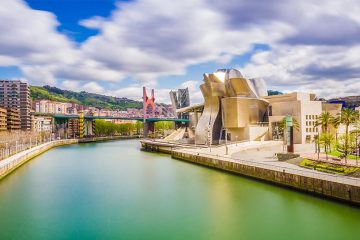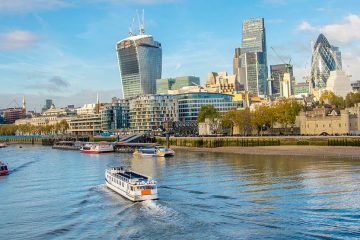Take in Varied Cities and Sights on These European River Cruises
See the Continent from the Shore With European River Cruises
Rivers have captured the human imagination from time immemorial. The sweet pull of slowly sliding waters or breathtaking vistas carved by raging streams have found a place in all sorts of literature. Just consider ancient Hebraic poetry, which states, “There is a river whose streams make glad the city of God, the holy habitation of the Most High.” European river cruises may be the best place to start if you have yet to experience a river cruise.
A few hundred years later, Chinese poet Wang Zhihuan would write, “The sun beyond the mountains glows; The Yellow River seawards flows.” And the bluegrass band Nickel Creek would popularize Robert Burns’ 18th-century piece “Sweet Afton,” which praises a Scottish stream. “Flow gently, sweet Afton! amang thy green braes, Flow gently, I’ll sing thee a song in thy praise,” Burns exclaimed.
It’s easy to see why poets break out into verse while beholding such waters. It’s also easy to understand why modern-day vacationers have begun to book river cruises en masse. First, there’s the water itself, rolling currents that push well-appointed cruisers steadily toward the next destination.
Then there are the destinations themselves, all of those ancient cities and quaint towns that have sprung up around waterways. No wonder river cruises in Europe are drawing visitors from all over the world.
But which European river cruises are worth your time? Which routes offer the most engaging sights across demographics? Well, we have just the guide for you.
Floating Down the “Bringer of Luck”: The Danube (Germany to Romania)
No discussion about Europe river cruises would be complete without mentioning the Danube. As Europe’s second largest river, it has a rich and storied history. There’s a reason why the ancient Indo-Europeans called it the Bringer of Luck. At nearly 2,000 miles long, it makes contact with Germany, Austria, Slovakia, Hungary, Croatia, Serbia, Romania, Bulgaria, Moldova and Ukraine. Numerous cities sprung up upon its banks, ancient cities full of history. Budapest and Bratislava. Beograd and Wien. Vienna and Krems. Belgrade and Passau.
Then there’s the geography of the river itself. As you can imagine, the Danube changes quite a bit over its multi-country length. Near its origin, the river starts out rocky and narrow. Yet by the time it reaches its middle section, it swells incredibly, growing up to a mile in width. On your cruise, you can see mountains and wine country, castles and hamlets, unspoiled nature and world-class metropolises. And that’s just the start of what a Danube cruise has to offer.
Just as attractions abound along the river, so do day trips to various sites. See Dracula’s castle in Bucharest. Travel to Nuremberg for a World War II tour. Visit St. Stephen’s Cathedral in Vienna. Stroll through Bucharest’s Castle District, which happens to be a UNESCO Site. Peer at the preserved glory of Regensburg, a city that takes you back to medieval Germany. Partake in Oberammergau’s passion play, a tradition that stretches back for approximately four centuries.
You won’t struggle finding things to do on a Danube cruise. The real challenge lies in deciding what to take in. Not every cruise company covers the entirety of the Danube, even though about nine-tenths of it is navigable by river cruisers. For those that do, the trip takes almost a whole month.
The most common legs of the voyage are from Budapest to Germany and Bucharest to Budapest. And though you may not think it, Danube river cruises can prove quite active with the numerous stops and outings. Make sure to bring comfy walking shoes!
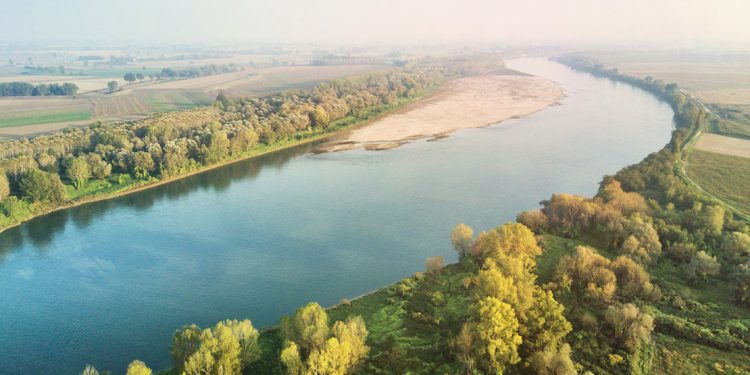
A Romantic Cruise in the Land of Love: The Po River (Northern Italy to the Adriatic Sea)
The Po River doesn’t have quite the same name recognition as the Danube. Still, this river in Northern Italy twines through some of the nation’s most beautiful scenery. It divides the regions of Lombardy from Emilia-Romagna and Veneto. The first is known for its wine and agriculture, while the others are home to balsamic vinegar and stunningly varied scenery, respectively. You get the idea: there isn’t much about these areas that isn’t beautiful.
Naturally, some tour companies offer different options than others. Given that most cruises range from five to 10 days in length, you can imagine that itineraries vary. One constant is that virtually all outfits focus part of their tour on Venice, which lies just north of where the Po empties into the Adriatic Sea. It’s a small trip to enjoy sights such as the Piazza San Marco, the Bridge of Sighs, Doge’s Palace and St. Mark’s Basilica.
However, even the tours that only dip their toes into the Po allow you to see some of Italy’s quaintest locales. However, expect to make plenty of day trips via bus or car. Traveling upriver to the west brings you near Bologna, a gastrophile’s paradise. Sample astonishing cuisine and walk through open-air food markets.
You’ll also end up within striking distance of Verona, the setting for “Romeo and Juliet,” Shakespeare’s most famous play. Padua boasts the second-oldest university in Italy and contains numerous medieval-era structures. It’s well worth donning your sneakers for an extended walk through this very, very old city and a great way for couples to celebrate their love in a historic way.
Architecture tends to steal the show in Italy, and river cruises are no exception. But the Po Delta Nature Reserve deserves your attention, particularly when traveling by river boat. Located at the delta formed by six branches of the Po as it empties into the Adriatic, the reserve boasts several thousand species of bird, some of which draw scientists from all over the world. In fact, the United Nations states that it’s Italy’s only delta.
When booking your Po River cruise, make sure to carefully examine the itinerary your cruise company has assembled. Some outfits advertise their outings as Po River tours when they really spend most of their time around Venice and its various lagoons.
If it's your first time flying, the prospect of entering the airport unprepared can be daunting. These tips will help you every step of the way!
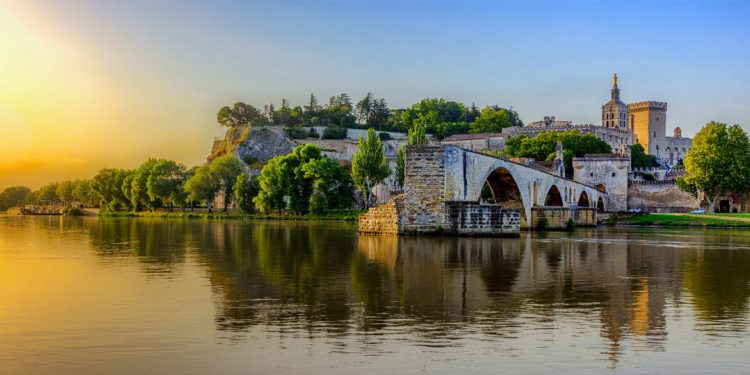
A Wine and Food Lover’s Paradise: The Rhone (The Alps to the Mediterranean)
Sun-dappled and downright gorgeous, the South of France is a true European paradise. Fields of lavender and endless vineyards. Verdant fields and ancient churches. And, of course, the water. Both the Rhone itself and the Mediterranean into which it empties have drawn travelers for generation after generation. Only river passengers get to enjoy a bevy of delightful day trips along the way.
One of the great advantages of a river cruise in Europe down the Rhone is the variety of options available. Just about every kind of traveler can find something to their liking. Trips can range from three days to three weeks.
Why? Well, some shunt folks down a relatively small section of the 500-mile length of the Rhone. These trips might find you starting in Lyon and cruise to Arles where you’ll learn about horse breeding before touring the papal palace in Avignon. Similar itineraries might feature foot tours of Les Baux-de-Provence (a historical commune), jeep tours of the Camargue (a wetland area near Nimes), or an exploration of the Gorges de l’Ardèche (which some have dubbed the European Grand Canyon).
And those are just the shorter trips. Lengthier excursions might take you from Lyon over to the Saone River where you’ll enjoy private wine and chocolate tastings in Chalon-sur-Saone. Explore castles in Burgundy and tour vineyards. Discover the secrets of the Benedictine Abbey of Cluny, bike in Vienne, and view the medieval settlement at the heart of Uzès, a settlement that has existed in one form of another since the 11th century. Some outfits will even shunt you over to Monte Carlo by the trip’s end so you can enjoy a bit of the high life.
Indeed, the experiences you can find on a Rhone river cruise are every bit as varied as the South of France itself. Tour companies offer outings crafted for families, foodies, adventure lovers and couples.

